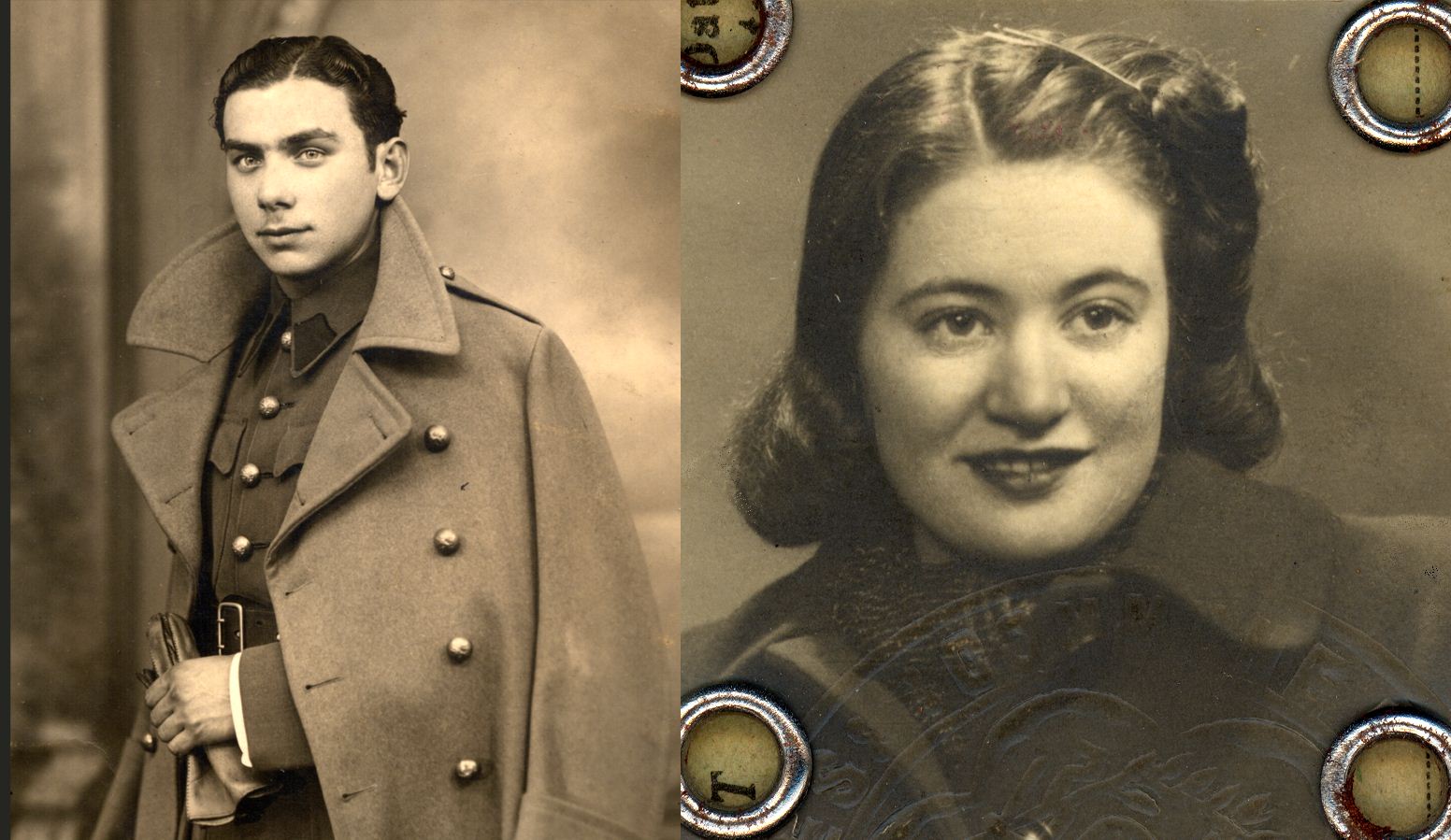
Simon Guterman in the uniform of the Belgian Army, 1940 - His wife, Liba Bywalska, at the end of the 1930s
Simon Guterman was born in Brussels in 1916, while his wife, Liba Bywalska, emigrated from Poland in 1922. A Jew of Belgian nationality he served in the Eighteen Day Campaign. Considering themselves protected by their Belgian nationality, the couple did not leave their home on Rue de Hollande in Saint-Gilles, which was in a district where 31 people were arrested during the great raid on Brussels, including two in the house where they lived. Simon Guterman and Liba Bywalska were arrested and taken together to the Dossin Barracks on 20 January 1943, where they were initially put down for Transport 22 B, which was reserved for Belgian Jews. However they were not deported on 20 September 1943 as intended. Liba Bywalska, 21, was pregnant when she was arrested and on 6 May 1943, gave birth to a little girl, Denise, in the Sammellager itself. The young mother and infant were admitted twice to the Onze Lieve Vrouw Gasthuis, the first time, a few days after the birth, and the second time, at the end of August, when the baby caught whooping cough. However, the deportation of this family was only deferred. Simon Guterman, his young wife, Liba Bywalska, and their little girl, Denise, were eventually put on Transport 24 and taken to Auschwitz-Birkenau on 4 April 1944. When the transport arrived at the selection ramp in Birkenau on 7 April, the SS immediately executed half the women and girls. A young woman of 21 with a baby barely a year old would have been a prime target for the SS special action (sonderaktion). Liba Bywalska and her little girl, Denise, were sent immediately to the gas chambers at Birkenau. Simon Guterman, 27, disappeared without a trace, so we cannot know the circumstances of his death.
